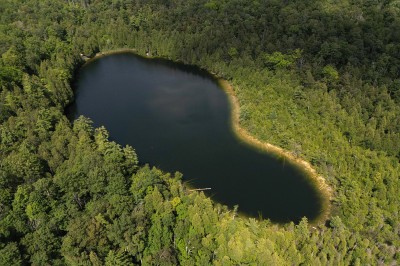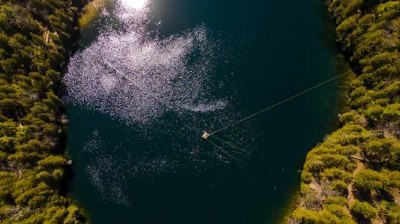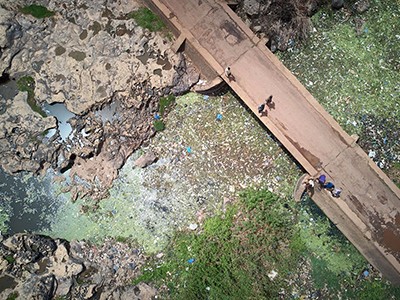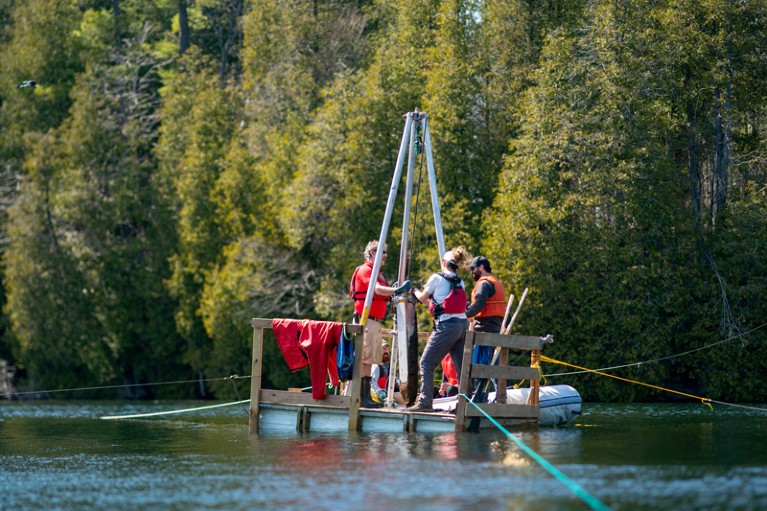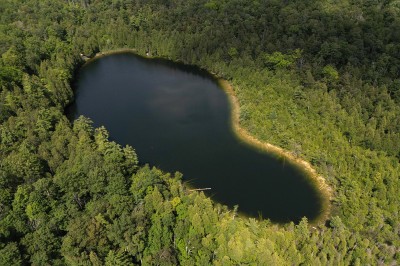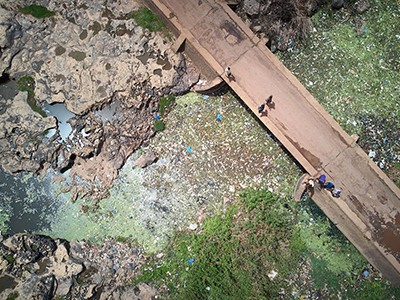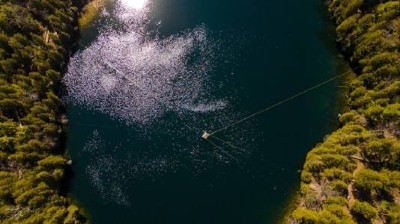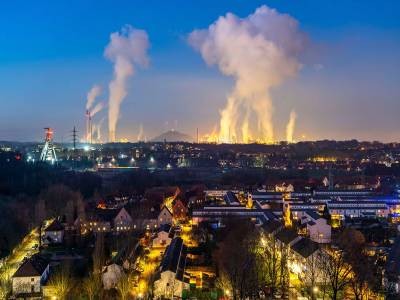[ad_1]
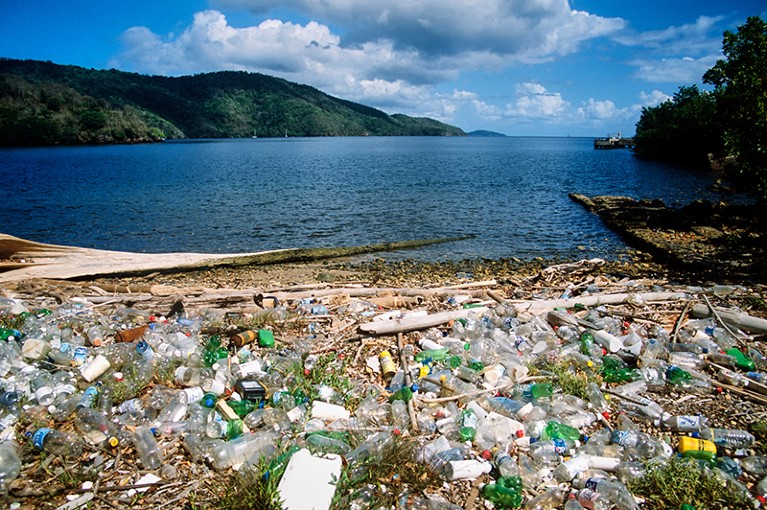
Some geoscientists argue that humans have transformed the planet with plastic trash, radioactive debris and fossil-fuel emissions, among other things — and that the changes should be recognized with a new geological epoch.Credit: Mark Meredith/Getty
A high-profile battle over whether to designate the ‘Anthropocene’ as a new geological epoch has come to an end. On 20 March, the International Union of Geological Sciences (IUGS) — the final arbiter in the matter — announced it is upholding a decision made earlier this month by a group of geoscientists. That group voted on 4 March to reject a proposal that would have established the current era, in which humans are altering the planet, as a formal epoch in Earth’s geological timetable.
Geologists reject the Anthropocene as Earth’s new epoch — after 15 years of debate
The IUGS decision effectively terminates a dramatic challenge to that earlier vote: the chair and a vice-chair of the Subcommission on Quaternary Stratigraphy (SQS), which held the vote, said it was illegitimate. Among other things, they said that 11 of the 16 SQS members who voted on the Anthropocene proposal were ineligible because they have been members of the subcommission for too long.
In a statement, the IUGS called the 4 March vote and its appeal “a difficult process” that was conducted “fully in accordance with the statutory requirements”. Stanley Finney, a stratigrapher at California State University, Long Beach, who is the IUGS secretary-general, told Nature that it was longstanding practice among these subcommissions to allow members who had overextended their terms to vote anyway. “You can’t just throw them off if you want something done,” he says.
The IUGS is the parent organization for the International Commission on Stratigraphy (ICS), to which the SQS belongs. “There is no further supreme court one can go to,” says Jan Zalasiewicz, a palaeontologist at the University of Leicester, UK, who is the SQS chair who protested the subcommission’s vote. “I have no immediate plans for a challenge.”
A tangled quest
The controversy underscores the long-running quest to bring the Anthropocene proposal to a vote, and the tangle of international geological organizations involved. In 2009, the SQS set up an Anthropocene working group to assess whether the current era of human-induced change should be codified as a new ‘stratigraphic unit’ in the geological time scale. After 15 years of discussion and exploration, the working group submitted its proposal last October, arguing that a new epoch should be established. Its start, the group said, should be marked by plutonium residue from hydrogen-bomb tests in 1952 appearing in Earth’s geology.
This quiet lake could mark the start of a new Anthropocene epoch
Under ICS rules, such a proposal would normally be discussed for a 30-day period and then voted on for another 30 days. Zalasiewicz says he and vice-chair Martin Head, a stratigrapher at Brock University in St Catharines, Canada, recused themselves from moderating the discussion because of conflicts of interest from their earlier participation in the Anthropocene working group. When the discussion period ended and other SQS members moved to vote on the proposal, Zalasiewicz and Head objected, saying that it had not been given serious consideration and that the vote was rushed.
Voting began in early February and ended on 4 March, with four SQS members voting in favour of establishing an Anthropocene epoch and 12 voting against it. Three people abstained and three did not vote, including Zalasiewicz and Head. The results of the vote were then approved by the full ICS and, as of today, the IUGS.
Participation on ICS subcommissions, which deal with different geological periods from the ancient to the modern, typically happens in four-year terms. Anyone who has been a member of a subcommission for more than 12 years is no longer a voting member, according to ICS statutes. Zalasiewicz says that this restriction applies to him, as well as to many other SQS members — and says that for this reason, the 4 March vote is illegitimate.
Stricter compliance
The discussion has prompted other ICS subcommissions to re-examine their membership rosters for people who might have passed the 12-year limit and thus are no longer eligible to vote, says Philip Gibbard, a geologist at the University of Cambridge, UK. More broadly, the IUGS has been working towards refreshing its committee membership more frequently, to increase gender, racial and geographic equity, Finney says.
Ditching ‘Anthropocene’: why ecologists say the term still matters
David Harper, a palaeontologist at Durham University, UK, and current chair of the ICS, says that the commission will be enforcing stricter compliance on term limits going forward.
For his part, Zalasiewicz says he has been asked to step down as SQS chair and does not expect to be part of any ICS group going forward. He and other Anthropocene-epoch advocates are likely to continue their campaign in other venues, he says: “Another means will have to be found” to codify the Anthropocene as a concept outside of the official geological timescale.
Regardless of there being no formal Anthropocene epoch, the term will continue to be used in broad popular and scientific usage as the era of human-induced change. “As such, it will remain an invaluable descriptor in human-environment interactions,” the IUGS says.
[ad_2]
Source Article Link


